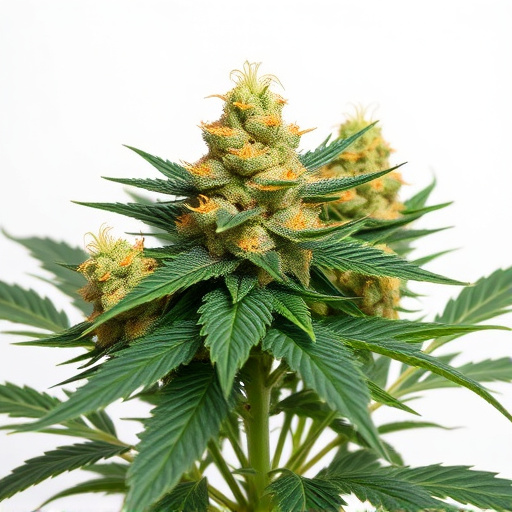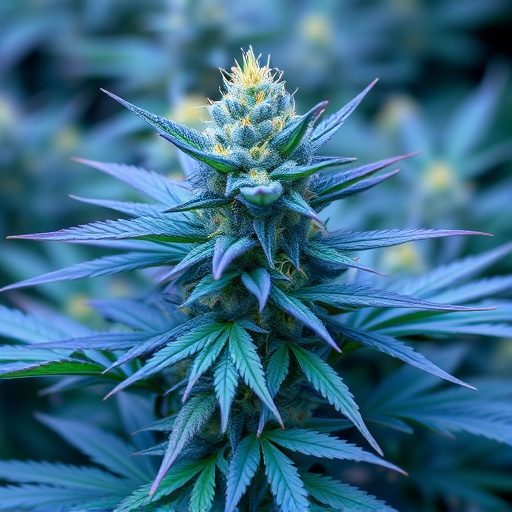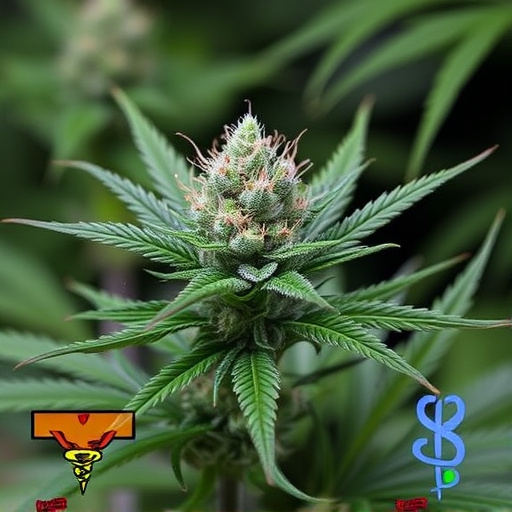The speed at which an individual's body metabolizes and clears cannabis compounds, influenced by genetics, age, health, and diet, significantly impacts detection times of active ingredients like THC in medical cannabis strains. Faster metabolizers may experience shorter detection windows, while slower metabolizers could face extended periods of detectability, increasing the risk of failing drug tests. Understanding these variations is crucial for accurate interpretation of test results and personalized dosing, allowing users and healthcare providers to make informed decisions regarding medication adherence and therapeutic outcomes.
“Unveiling the factors that dictate cannabis detection times is paramount, especially in the context of medical cannabis strains. This comprehensive guide explores the intricate web of variables influencing how quickly and for how long cannabis remains detectable in an individual’s system. From metabolism and genetic predispositions to strain-specific cannabinoid profiles and testing methodologies, each element plays a crucial role. Understanding these factors empowers consumers and healthcare professionals alike to navigate the complexities of medical cannabis use with enhanced knowledge.”
- Metabolism and Individual Variability
- – Genetic factors influencing metabolism
- – Age, weight, and overall health impact detection times
Metabolism and Individual Variability

The metabolism of an individual plays a significant role in determining how quickly cannabis is processed and detected in their system. Everyone’s physiological makeup is unique, leading to varying metabolic rates that influence drug clearance times. This variability can be attributed to genetic factors, age, overall health, and even diet. For instance, individuals with faster metabolisms may clear cannabis compounds more rapidly, resulting in shorter detection windows after consumption. Conversely, those with slower metabolisms might experience extended periods of detectability, particularly when using high-potency medical cannabis strains.
Understanding this variability is crucial for accurately interpreting drug tests and legal considerations surrounding medical cannabis use. It highlights the importance of personalized approaches to cannabis consumption, where timing and dosage are tailored to an individual’s unique metabolism. This knowledge empowers users and healthcare providers alike to make informed decisions regarding medication adherence and potential therapeutic outcomes.
– Genetic factors influencing metabolism

The metabolism of cannabis, and thus the detection times for its active compounds like THC (tetrahydrocannabinol), can be significantly influenced by genetic factors. Different people have varying rates at which they process cannabis due to natural variations in their enzymes responsible for breaking down these compounds. This means that two individuals consuming similar doses of medical cannabis strains might experience different effects and detection windows. For example, fast metabolizers may clear THC from their system more quickly, leading to shorter detection times, while slow metabolizers could have longer-lasting effects and a higher chance of failing drug tests.
Genetic predispositions can also play a role in the specific enzymes that break down THC, such as CYP2C9 and UGT7B1, which are involved in its metabolism. Variations in these genes can affect how efficiently cannabis is metabolized, ultimately impacting detection times. Understanding these genetic factors is crucial when considering the use of medical cannabis strains, especially for patients concerned about potential drug interactions or those requiring regular testing.
– Age, weight, and overall health impact detection times

The impact of age, weight, and overall health on cannabis detection times is significant, especially when considering individuals who consume medical cannabis strains. Younger individuals tend to metabolize drugs faster due to a higher percentage of fast-acting enzymes in their bodies. This can lead to shorter detection windows compared to older adults. Similarly, those with healthier livers, which are responsible for processing cannabis compounds, may clear these substances from their systems more quickly, resulting in reduced detection times.
Weight is another critical factor; lighter individuals might experience faster metabolism and excretion rates of cannabis, while those with higher body masses can retain cannabinoids for extended periods. This variation emphasizes the importance of personalized dosing and understanding one’s own physiological response to medical cannabis strains.
Understanding the factors that influence cannabis detection times is crucial for both users and healthcare professionals. Metabolism, driven by genetic variations, along with age, weight, and overall health, significantly impacts how quickly medical cannabis strains are metabolized and detected in an individual’s system. By considering these variables, users can make more informed decisions regarding consumption timing and dosage, ensuring optimal therapeutic effects while adhering to legal and safety guidelines.














